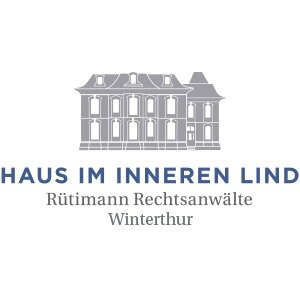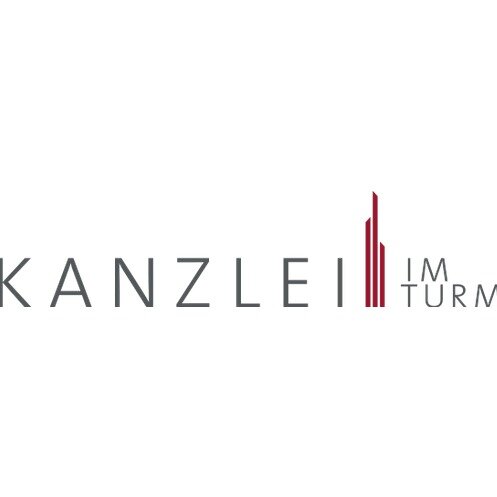Best Inheritance Law Lawyers in Winterthur
Share your needs with us, get contacted by law firms.
Free. Takes 2 min.
List of the best lawyers in Winterthur, Switzerland
1. About Inheritance Law in Winterthur, Switzerland
Winterthur residents follow Swiss inheritance law governed primarily by the Swiss Civil Code (Schweizerisches Zivilgesetzbuch, ZGB). This framework covers testamentary freedom, intestate succession, and the rights of forced heirs. It also sets rules for forming, interpreting, and revoking wills and for using legal documents like contracts on inheritance (Erbverträge).
In Switzerland, the distribution of a deceased person’s estate involves probate, asset inventory, and potential settlement of debts before heirs receive their shares. The process can be complex when assets exist both in Switzerland and abroad or when a blended family is involved. A local lawyer or solicitor can help navigate notary formalities, estate administration, and creditor claims efficiently.
Important context for Winterthur is that cantonal rules influence ancillary matters such as inheritance taxes and certain administrative procedures. Because Zurich is a major cantonal hub, residents often encounter cross-border issues with neighboring Germany, Austria, and other cantons. Consulting a Winterthur lawyer can clarify which rules apply to your specific estate.
Pflichtteil rules in Swiss inheritance law guarantee a minimum share to certain close relatives, protecting them from disinheritance under a will. Source: Swiss Civil Code overview.
Swiss Civil Code (ZGB) - Erbrecht defines the core concepts for inheritance, including testamentary freedom and forced heirship. For practical guidance on how these rules apply in Winterthur, consult a local solicitor or legal counsel.
2. Why You May Need a Lawyer
Here are concrete, real-world scenarios in Winterthur where legal help is essential. Each situation involves technical rules and precise deadlines that are best handled by a qualified solicitor or attorney.
- A blended family member challenges a will that disinherits them; you need to determine validity, interpret provisions, and negotiate settlements.
- Assets include Swiss real estate and a share in an overseas business; you require cross-border probate guidance and multi-jurisdictional coordination.
- The estate has significant debts and competing creditor claims; you need orderly debt settlement and asset realization to preserve value for heirs.
- You suspect the will or a testamentary document was drafted under undue influence; you need evidence gathering and potential legal action to invalidate or revise it.
- Appointing or challenging a testamentary executor (Testamentsvollstrecker) requires formal authority and adherence to Swiss procedure.
- You want to minimize taxes within the cantonal framework and ensure compliant, legitimate estate planning for future needs.
3. Local Laws Overview
The key laws shaping Inheritance Law in Winterthur are federal and cantonal in nature. The core provisions come from the federal Civil Code, while cantonal rules govern administration and taxes. Below are the main sources to consult for precise rules and recent amendments.
- Schweizerisches Zivilgesetzbuch (ZGB) - Erbrecht - The federal civil code section that governs inheritance, testamentary freedom, intestate succession, and the Pflichtteil. Articles commonly cited include provisions on legal heirs, wills, and Erbverträge.
- Kanton Zürich Erbschafts- und Schenkungssteuerrecht - Cantonal rules that determine whether inheritance tax applies and how it is calculated for different relationships. Tax treatment varies depending on the beneficiary and the relation to the deceased.
- Testaments- und Notariatsvorschriften im Kanton Zürich - Local formalities for wills and notarial acts, including where documents must be stored and how they are validated in Winterthur.
Recent changes in Swiss inheritance law tend to occur through updates to the ZGB text and cantonal guidance on tax treatment and probate practices. For authoritative, up-to-date text, review the official Civil Code and cantonal directives via trusted sources.
For official legal texts and current summaries, see:
Swiss Civil Code (ZGB) - Erbrecht and Kanton Zürich - Cantonal guidance on tax and inheritance matters. These sources provide the formal law and practical guidance relevant to Winterthur residents.
4. Frequently Asked Questions
What is the difference between a will and an Erbvertrag?
A will expresses a person’s last wishes about asset distribution. An Erbvertrag is a binding inheritance agreement between parties, often used for blended families or long-term planning. Each has different formal requirements.
How do I start probate for a Winterthur estate?
Begin by gathering the will, death certificate, asset list, and debts. A lawyer can help initiate probate with the appropriate authority and coordinate with a notary if needed.
When should I update my will in Winterthur?
Update after major life events such as marriage, divorce, the birth or death of a beneficiary, or relocation. Regular reviews help reflect current assets and wishes.
Where can I store an original will in Winterthur?
Original wills can be deposited with a Swiss notary or with the appropriate official registry. A lawyer can advise on the safest storage options and accessibility after death.
Why is the Pflichtteil important for Swiss heirs?
The Pflichtteil protects close relatives from being completely disinherited. It ensures a minimum share of the estate remains with eligible heirs under certain conditions.
Can I challenge a will if I think it is invalid?
Yes, you may contest a will on grounds such as lack of capacity, fraud, or undue influence. A lawyer can evaluate the strength of the case and guide you through the process.
Should I appoint an executor for the estate?
Appointing an executor or Testamentsvollstrecker can streamline probate and enforce the will. A lawyer can help draft appointment terms and oversee compliance.
Do I need a lawyer to draft a will in Switzerland?
No, you can draft a will yourself, but professional advice helps ensure validity, avoid ambiguities, and align with tax planning goals.
Is notarial involvement required for a valid will?
Not necessarily, but certain forms and declarations benefit from notarial oversight, particularly for complex estates or real estate transfers.
How long does probate typically take in Winterthur?
Probate duration varies by complexity and canton. Simple estates may finalize within 6 to 12 months; complicated cases can take longer, depending on creditor claims and asset inventories.
How much does it cost to hire an inheritance lawyer in Winterthur?
Costs depend on case complexity, time, and rates. A lawyer may charge by hour or offer a fixed-fee package for specific services such as will validation or probate filings.
5. Additional Resources
These official sources provide authoritative information on Swiss law and cantonal procedures related to inheritance matters.
- SAV - Schweizerischer Anwaltsverband - The Swiss Bar Association offers guidance on finding qualified lawyers and understanding professional standards. https://www.sav.ch
- Admin Switzerland - Federal Civil Code and public information - Official portal hosting federal law texts including Erbrecht and related topics. https://www.admin.ch
- Ch.ch - Inheritance and wills information for residents - Federal citizen portal with practical guidance and links to cantonal resources. https://www.ch.ch/en/family/inheritance/
6. Next Steps: Finding and Hiring a Winterthur Inheritance Law Lawyer
- Define your goals and constraints. Write down what you want to protect, names of potential beneficiaries, and assets involved. Set a realistic timeline for resolution.
- Gather key documents. Collect the will or testament, death certificate, asset lists, real estate deeds, and debt statements. Create a clear file for easy sharing with a lawyer.
- Identify candidate lawyers. Look for specialists in Inheritance Law and probate in Winterthur. Check language capacity if you need German, English, or other services.
- Verify credentials and references. Confirm licensing with the Swiss Bar Association and request client references or case summaries similar to your situation.
- Schedule an initial consultation. Bring documents, outline your goals, and ask about fees, timeline, and expected steps. Ask about English or German document handling.
- Agree on engagement terms and costs. Request a written fee estimate, expected hours, and a clear scope of work. Confirm billing cadence and payment terms.
- Develop a plan and begin work. With your lawyer, prepare wills, executory appointments, or objections, and file necessary probate or tax documents. Create a milestone timeline.
Lawzana helps you find the best lawyers and law firms in Winterthur through a curated and pre-screened list of qualified legal professionals. Our platform offers rankings and detailed profiles of attorneys and law firms, allowing you to compare based on practice areas, including Inheritance Law, experience, and client feedback.
Each profile includes a description of the firm's areas of practice, client reviews, team members and partners, year of establishment, spoken languages, office locations, contact information, social media presence, and any published articles or resources. Most firms on our platform speak English and are experienced in both local and international legal matters.
Get a quote from top-rated law firms in Winterthur, Switzerland — quickly, securely, and without unnecessary hassle.
Disclaimer:
The information provided on this page is for general informational purposes only and does not constitute legal advice. While we strive to ensure the accuracy and relevance of the content, legal information may change over time, and interpretations of the law can vary. You should always consult with a qualified legal professional for advice specific to your situation.
We disclaim all liability for actions taken or not taken based on the content of this page. If you believe any information is incorrect or outdated, please contact us, and we will review and update it where appropriate.













